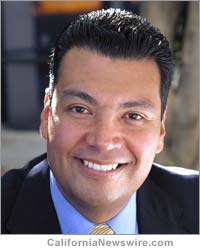SACRAMENTO, Calif. /California Newswire/ — The Calif. State Senate today approved Senate Bill 1138 by Senator Alex Padilla (D-Pacoima) on a vote of 36 to 0. The bill would address the growing problem of seafood mislabeling and its effects on public health, consumer choice, and sustainable fishing practices. The bill now goes to the State Assembly for consideration.
 “SB 1138 addresses the growing problem of seafood mislabeling. To protect our health, oceans, and economy it is essential that seafood be labeled accurately,” said Senator Alex Padilla. “The seafood we order should be the seafood we are served,” added Padilla.
“SB 1138 addresses the growing problem of seafood mislabeling. To protect our health, oceans, and economy it is essential that seafood be labeled accurately,” said Senator Alex Padilla. “The seafood we order should be the seafood we are served,” added Padilla.
While spending on seafood in the United States has grown to more than $80 billion annually, state law does not provide clear guidance regarding accurate labeling of seafood. The lack of standards has led to high rates of mislabeling throughout our state. A recent study by Oceana, the largest international organization focused solely on ocean conservation, found 52% of all fish sampled in Southern California and 38% of all fish sampled in Northern California were mislabeled.
“As Californians we care about our coast. We also care about sea life and ecosystems off our shores. Mislabeled seafood threatens species and imperils the sustainability of sea life in the Pacific Ocean and oceans around the world,” said Senator Alex Padilla.
SB 1138 would make it unlawful for any person to knowingly sell or offer to sell at wholesale or retail any fresh, frozen, or processed food fish or shellfish without identifying the species of food fish or shellfish by its common name. A violation would be punishable by $1,000 fine and up to a year in jail. The bill is modeled after similar legislation passed in the state of Washington.
“Seafood consumers need accurate information about what they are buying to make informed decisions about their health,” said Dr. Geoff Shester, California Campaign Director of Oceana. “Senator Padilla’s bill will ensure California consumers don’t get duped when buying seafood.”
In 2013, Oceana released the results of a nationwide study on fish sampled at retail outlets, such as restaurants, grocery stores and sushi bars including in San Francisco, Los Angeles and Monterey and found:
• 84% of sushi samples were mislabeled in Southern California
• 58% of restaurants visited in Northern California sold mislabeled fish
• 52% of all fish sampled were mislabeled in Los Angeles and Orange Counties
• 38% of all fish sampled were mislabeled in Northern California
• 27% of grocery stores visited in Northern California sold mislabeled fish
• Southern California leads the nation in mislabeled fish
“The Oceana study revealed that half the tested seafood sold in California is routinely mislabeled. SB 1138 will change that. Honesty in seafood labeling is important to our health, our oceans and our economy,” said Senator Alex Padilla.
While seafood is an excellent choice in a healthy diet, seafood mislabeling can lead to the consumption of seafood that is unhealthy and potentially dangerous. Certain species of fish can have unhealthy levels of mercury or can cause severe allergic reactions. The U.S. Environmental Protection Agency gives a clear warning about the dangers of mercury to fetuses, infants, and children. The U.S. Food and Drug Administration recommend that women of childbearing age, pregnant or breastfeeding avoid eating certain fish such as swordfish and shark.
Seafood mislabeling also undermines conservation efforts and threatens at-risk species. Conservation efforts rely on an informed public making responsible and sustainable choices. However, it is difficult to make sound choices if seafood is mislabeled. Between 1950 and 2006 the world’s annual fishing haul more than quadrupled, from 19 million tons to 87 million tons. The Census of Marine Life, a decade-long international survey of ocean life completed in 2010, estimated that 90% of the big fish had disappeared from the world’s oceans, victims primarily of overfishing.
Senator Alex Padilla, 41, graduated from MIT with a degree in Mechanical Engineering. He currently serves on the Board of MIT and is President of the National Association of Latino Elected and Appointed Officials. He is Chair of the Senate Energy, Utilities and Communications Committee and represents the more than 1,100,000 residents of the 20th State Senate District in Los Angeles.







